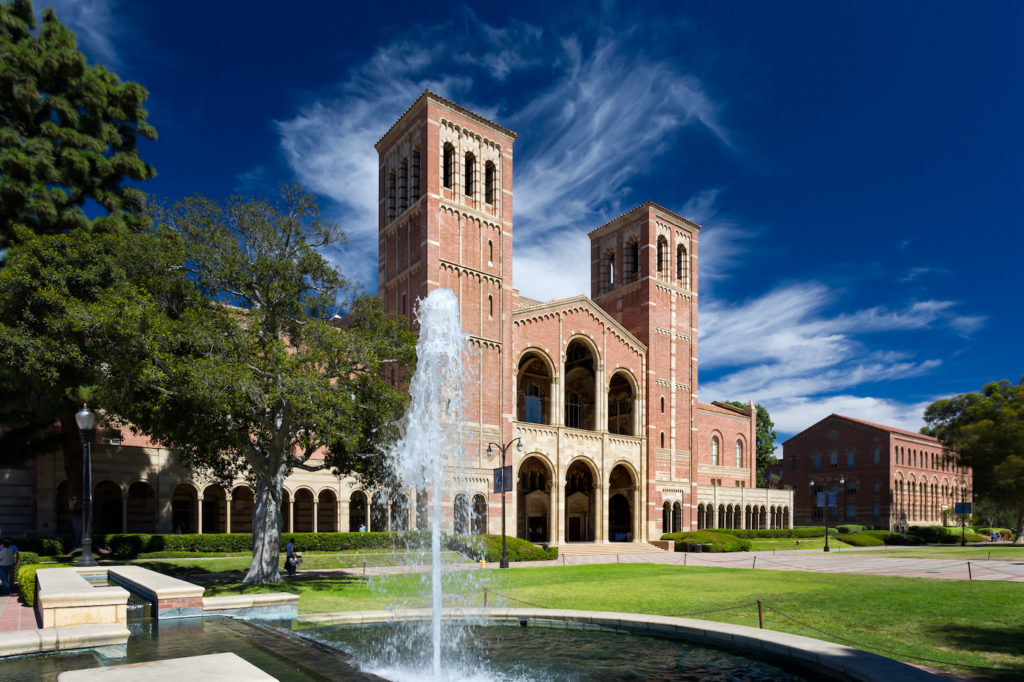Everyone by now is familiar with the phenomenon of “cancellation” on college campuses. To cite but a few prominent examples:
- In 2015, Professors Nicholas and Erika Christakis were denounced by a mob of Yale students for the latter’s writing of a perfectly sensible email regarding Halloween costumes, and the former’s calm defense of her in person to a gang of hostile students. The Christakises relinquished their leadership posts at a Yale residential college, and Erika Christakis subsequently left the university faculty.
- In 2017, Bret Weinstein and Heather Heying, a married couple teaching biology at Evergreen State College in Washington, were hounded from their faculty positions after Weinstein refused to participate in a “day of absence” for all white faculty and students. (Heying was on leave at the time.)
- Also in 2017, the social scientist Charles Murray was physically attacked by students at Middlebury College who had disrupted and shouted down a talk he had been invited to give. Middlebury political science professor Allison Stanger—who had been invited to respond critically to Murray’s talk—suffered a concussion in the attack on them both.
- In 2020, classicist Joshua Katz of Princeton wrote an opinion essay sharply disagreeing with 300 of his colleagues who had espoused fairly extreme views on “racial justice.” Since that time he has suffered ostracism and condemnation from Princeton students, faculty, and administrators, including being unfairly characterized as a racist in a program that was mandatory viewing for incoming freshmen.
- This fall, physicist Dorian Abbot of the University of Chicago, who had published his opposition to racial preferences, was first invited and then disinvited to give a prestigious Carlson Lecture at MIT, which was of course not to have been about such matters at all, but about “Climate and the Potential for Life on Other Planets.” Abbot wound up giving his lecture to a very large online audience under the auspices of the James Madison Program at Princeton.
- For her dissent from the transgender agenda, the feminist philosopher Kathleen Stock has lately been effectively driven from the faculty of the University of Sussex in England.
Many lesser known incidents could be adduced with ease, but you get the picture. And students who deviate from the party line on college campuses often have it far worse than faculty. Ruination awaits many young people who vocally dissent from today’s “smelly little orthodoxies,” to borrow a phrase from George Orwell, who knew a thing or two about these matters.
It should be noted that the examples above include both students and faculty behaving badly in reacting to arguments with which they disagree. I would venture to say that if faculty did not model brutal behavior for their students, and universally made it plain that they regarded such behavior as unacceptable, it would for the most part cease. Students may in many cases arrive in college very cocksure in their opinions about justice, but responsible faculty have always known how to deal with that problem: make them think about the matter, hard. So the poisonous atmosphere on many college campuses may be blamed on the faculty’s neglect of its duty at best, and its active betrayal of it at worst.
But how did things get this bad? I believe the causes are intertwined intellectual and moral failures. Here I will limit myself to what has gone wrong in my own discipline of political science, leaving it to others to comment on such fields as classics, English, history, sociology, psychology, or philosophy.
Start your day with Public Discourse
Sign up and get our daily essays sent straight to your inbox.The poisonous atmosphere on many college campuses may be blamed on the faculty’s neglect of its duty at best, and its active betrayal of it at worst.
I first glimpsed what was amiss with the modern discipline of political science—and at the same time was drawn to a career in the field—when I encountered Leo Strauss’s 1953 book Natural Right and History as an undergraduate. I do not now regard his thoughts on the modern philosophers—particularly on Locke and Burke—as unquestionably sound, as I once did. But Strauss’s opening chapters, on historicism (“Natural Right and the Historical Approach”) and positivism in the social sciences (“Natural Right and the Distinction Between Facts and Values”) retain the power with which they struck me then. The ideas that the truth about the human condition is radically contingent on history (historicism) and that we can speak rationally only about facts and not at all about “values” or moral principles (positivism) lead inexorably to a failure of all conviction, and ultimately to nihilism, which in turn eventuates (in Strauss’s memorable words) in “fanatical obscurantism.”
An interesting phrase, “fanatical obscurantism.” One might expect the banishment of people’s cherished beliefs to the realm of the irrational to issue in a kind of ennui, of the sort exemplified by Nietzsche’s “last men.” But instead what results is fanaticism: the impulse to bend others to one’s will, despite—or precisely because of—the lack of any rational foundation for one’s preferences.
Strauss was even more direct in his critique of his “behavioralist” contemporaries in political science in a famous essay included in a 1962 book edited by his student Herbert J. Storing, Essays on the Scientific Study of Politics. In “An Epilogue” in that book, Strauss observed of the new political science that “it must reduce the political things to non-political data,” e.g., to matters of “scientific psychology,” which meant that it attempted to understand “the human in terms of the sub-human, the rational in terms of the sub-rational, the political in terms of the sub-political.” In the course of its work, while affecting a studious political and moral neutrality, the discipline actually operated on an unstated and wholly undefended preference for democracy, a preference crippled from the outset by the denial that one can speak intelligibly of the common good. “The very complex pros and cons of liberal democracy have thus become entirely obliterated by the poorest formalism.”
One might expect the banishment of people’s cherished beliefs to the realm of the irrational to issue in a kind of ennui. But instead what results is fanaticism: the impulse to bend others to one’s will, despite—or precisely because of—the lack of any rational foundation for one’s preferences.
Did matters improve in political science after the early 1960s? Not really, according to James W. Ceaser in his 1990 book Liberal Democracy and Political Science. Frankly avowing that “liberal democracy has a special need for political science” to tend to its maintenance, Ceaser took a dim view of the dominant approaches of modern political science. The behavioralism of mid-century had been challenged by a new empirical school of thought, “rational choice,” but that new dispensation held that people should be considered “utility maximizers,” which is to say that they are “rational [only] in a purely instrumental sense.”
The hollowness of this account of human action being increasingly apparent, what Ceaser called a “new normativism” emerged to challenge it. He identifies multiple normative schools of thought, but what seems to unite them is that they are largely cut off from the tradition of political philosophy, from Aristotle to Montesquieu to the Federalist to Tocqueville, that might instruct their lucubrations about justice.
Ceaser only briefly mentions John Rawls as a leading light of the new normativism, but he is certainly representative of the problem. There seem to be entire departments of political science at prestigious universities whose “political theory” field is wholly populated by Rawlsians, yet to me the appeal of Rawls has always been mind-boggling. Allan Bloom, famous for The Closing of the American Mind (a 1987 book that for all its quirks and flaws holds up rather well), had written a lengthy critique of Rawls’s A Theory of Justice in 1975 (reprinted in his collected essays Giants and Dwarfs), which put paid to that work for me. Thanks to Rawls, Bloom averred, “We are in no position to push ahead with new solutions of problems; for as this book demonstrates, we have forgotten what the problems are.”
In my own specialty of public law, much of the action for over half a century has been in the study of “judicial behavior,” which attempts to explain the decision-making of judges by reference to every conceivable variable other than the reasons judges give in their opinions. The failures of this approach were exposed in the 1960s by the late Wallace Mendelson (in articles included in his 1985 book Supreme Court Statecraft), who wondered aloud why its practitioners had “not yet found a judge who seems to have been guided largely by law—though all profess to be.” Yet despite the transparent unreality of its “realism,” the project has continued apace ever since.
Between a “science” of politics that is capable of breeding only cynicism about public life, and a “normativism” that dresses up foundationless ideological commitments as moral imperatives, it is little wonder that political science fails to give students today any reason not to be vicious fanatics. They have been given license to treat their passions as principles, because so few of their teachers can instruct them in the difference.














